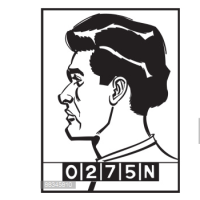Court Excludes Mug Shots from Freedom of Information Requests
 (graphic: Dynamic Graphics/Getty Images)
(graphic: Dynamic Graphics/Getty Images)
By Kevin Koeninger, Courthouse News Service
CINCINNATI (CN) — Arrested individuals have a privacy interest in preventing the release of their mug shots through the Freedom of Information Act, a divided Sixth Circuit ruled.
Thursday's en banc decision (pdf), a 9-7 ruling, overturns a 1996 ruling by the same court, which held that FOIA required the release of booking photos.
Detroit Free Press Inc. and the U.S. Department of Justice have been litigating the release of mug shots for over two decades.
Judge Deborah L. Cook authored the opinion for the majority, finding that booking photos meet the criteria for exemption 7(c) of FOIA, which includes potentially "embarrassing" personal information.
"Booking photos—snapped 'in the vulnerable and embarrassing moments immediately after [an individual is] accused, taken into custody, and deprived of most liberties'—fit squarely within this realm of embarrassing and humiliating information," she wrote.
Cook continued, "A disclosed booking photo casts a long, damaging shadow over the depicted individual."
Detroit Free Press argued that the Sixth Circuit should adopt the policies of some states, which require the release of mug shots, but Cook disagreed.
"Decidedly mixed, state laws favor neither wholesale disclosure nor nondisclosure," the judge wrote. "A mixed bag of state privacy laws cannot extinguish FOIA personal-privacy protections."
Despite overturning the court's previous ruling, mug shots can still be released under a FOIA request if it serves the interests of the public at large.
The majority adopted a case-by-case approach for determining the public's interest in the release of a booking photo, and Judge Cook scolded the dissenting judges for their "categorical rule" approach.
"The dissent highlights the public importance of disclosure by pointing to the possibility of mistaken identity, impermissible profiling, and arrestee abuse," she wrote.
"But these are phantoms. In cases of mistaken identity, arrestees are not going to protest using their booking photos to show that they are not the villain. Such arrestees undoubtedly will want the booking photo released so that they too can be released. The same goes for profiling and arrestee abuse. The privacy interest in a booking photo is the defendant's, and he or she can waive that interest."
Judge Danny Julian Boggs authored the dissenting opinion, which lamented the majority's decision as one that undermines the idea of an open government.
"Today's decision obscures our government's most coercive functions—the powers to detain and accuse— and returns them to the shadows," Boggs wrote. "Open government is too dear a cost to pay for the mirage of privacy that the majority has to offer."
The dissent argued that "once indicted, individuals become figures of public interest. Publishing their photographs is thus not an invasion of privacy."
Boggs concluded that "the majority's emphasis on embarrassment misses the point. Information can be both public and embarrassing...and the fact that a record is embarrassing does not answer the question whether an individual can reasonably expect that record to remain private."
Joining Boggs in his dissent were Judges Alice M. Batchelder, Karen Nelson Moore, Eric L. Clay, Richard Allen Griffin, Jane Branstetter Stranch and Bernice B. Donald.
The majority included Cook, Chief Judge R. Guy Cole Jr. and Judges Ralph B. Guy Jr., Julia Smith Gibbons, John M. Rogers, Jeffrey S. Sutton, David W. McKeague, Raymond M. Kethledge and Helene N. White.
To Learn More:
Detroit Free Press v. U.S. Department of Justice (U.S. Court of Appeals for the Sixth Circuit) (pdf)
Man Unhappy with His Mugshot Sends Police Selfie He Says is better (Associated Press)
Iowa Newspaper’s Choice of Photos for Burglary Suspects: Mug Shots of Blacks, Yearbook Photos of Whites (by Danny Biederman and Steve Straehley, AllGov)
“Miss Demeanor” Sues to Stop Commercial Use of her Mugshot (by Noel Brinkerhoff and Danny Biederman, AllGov)
Websites Charge $400 to Remove Mugshots of Innocent People from Internet (by Matt Bewig, AllGov)
- Top Stories
- Unusual News
- Where is the Money Going?
- Controversies
- U.S. and the World
- Appointments and Resignations
- Latest News
- Musk and Trump Fire Members of Congress
- Trump Calls for Violent Street Demonstrations Against Himself
- Trump Changes Name of Republican Party
- The 2024 Election By the Numbers
- Bashar al-Assad—The Fall of a Rabid AntiSemite






Comments